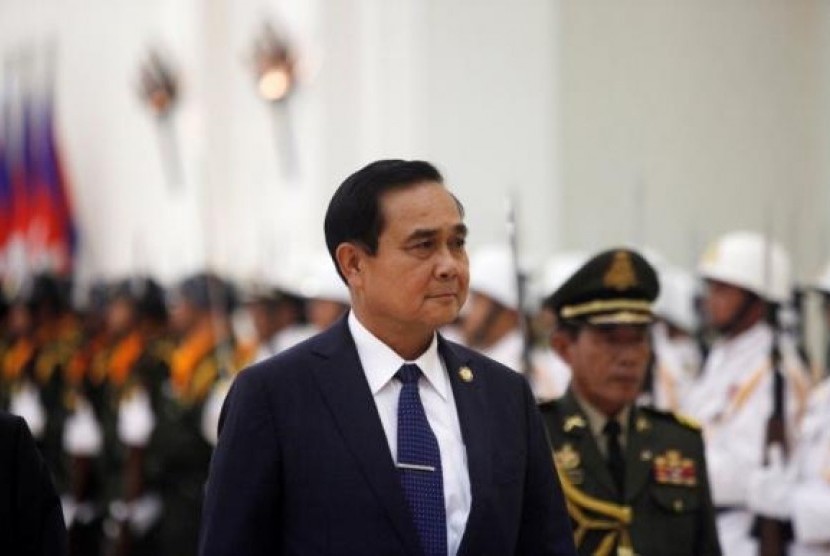REPUBLIKA.CO.ID, BANGKOK - Thailand's military government appointed a committee to draft a new constitution on Tuesday in a move seen aimed at preventing ousted former Prime Minister Thaksin Shinawatra and his allies from returning to power.
Nearly six months after the army seized power, a 36-member committee headed by Bavornsak Uwanno, a law academic at the conservative King Prajadhipok Institute who is known to have military sympathies, began work on a new charter. The committee must propose a draft within four months, before sending it to the National Reform Council and junta, formally known as the National Council for Peace and Order, for approval. Once approved, the charter will be Thailand's 20th since it became a constitutional monarchy in 1932.
"My hope is that the new constitution will put a stop to past divisions and that the public will be as involved in its drafting as possible," Thai junta leader General Prayuth Chan-ocha told reporters on Tuesday.
Some political observers said the charter would follow junta recommendations and include a clause that would prevent banned politicians from running in any future elections. This will ensure ousted former Prime Minister Thaksin Shinawatra and his allies, which have won every general election since 2001, can never return to power.
"The committee will likely include a clause that prevents those who were banned from politics in the past from running in future elections," said Kan Yuenyong, a political analyst at the Siam Intelligence Unit think tank.
"This could permanently disqualify some Thaksin allies and seriously undermine future efforts by Thaksin to win any general election once the army hands back power."
The army seized power on May 22 in a bid to restore order after months of political infighting that killed nearly 30 people. It scrapped a 2007 charter and rolled out an interim constitution that gave the military sweeping powers and includes an article protecting the coup-makers from prosecution.
The protests in Bangkok were the latest chapter in a roller coaster decade of political tumult - much of it centered on Thaksin, a telecommunications billionaire whose policies endeared him to the rural and urban poor but made him unpopular with the Bangkok-based conservative establishment. Thaksin was ousted by the army in 2006 and has lived in self-imposed exile since 2008 to avoid a two-year jail term for graft.


